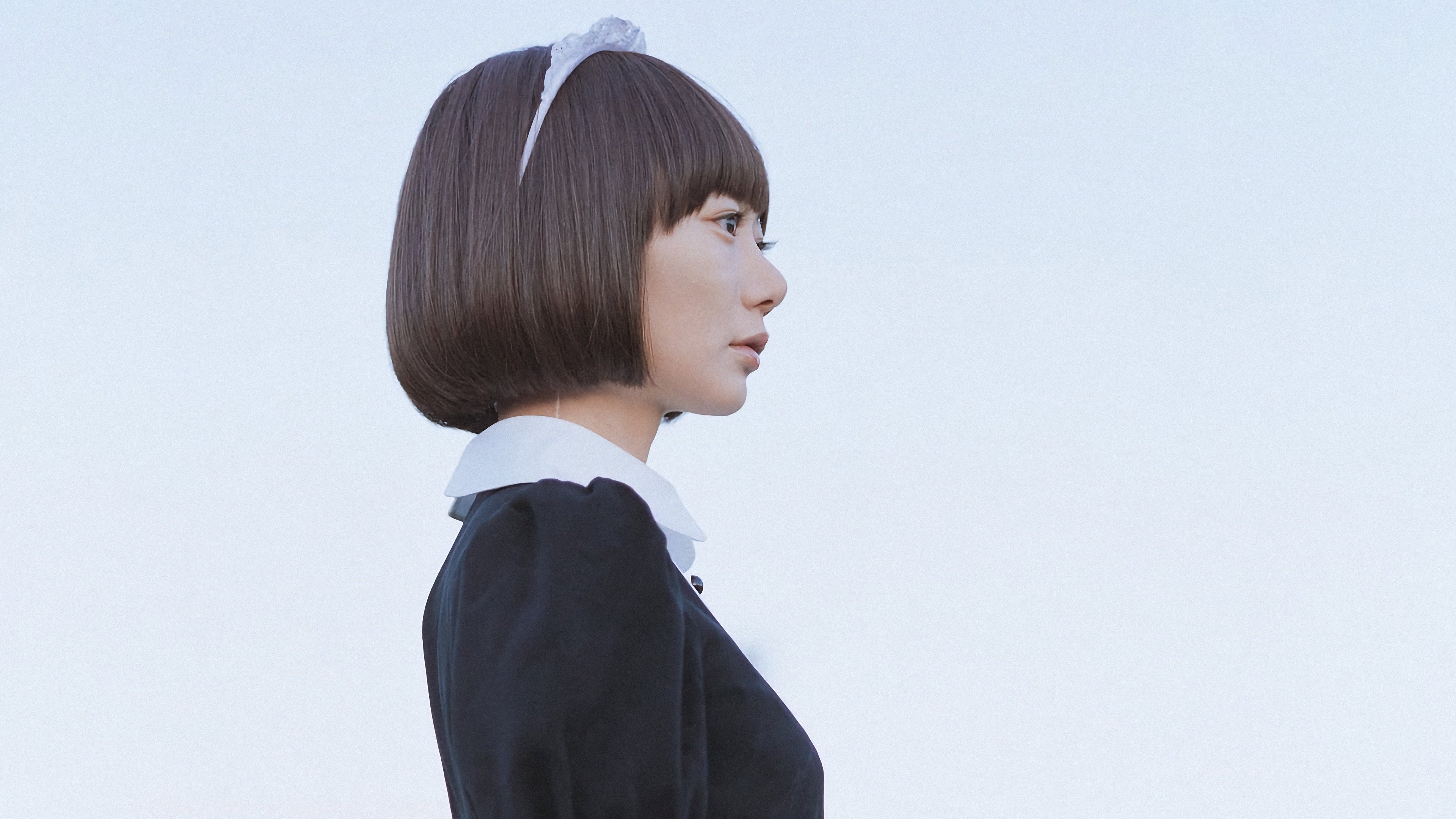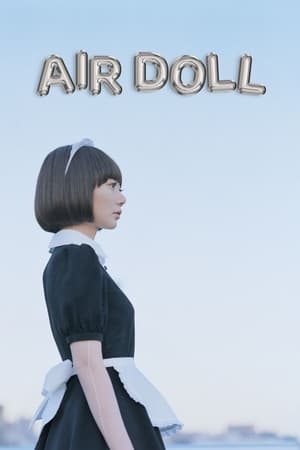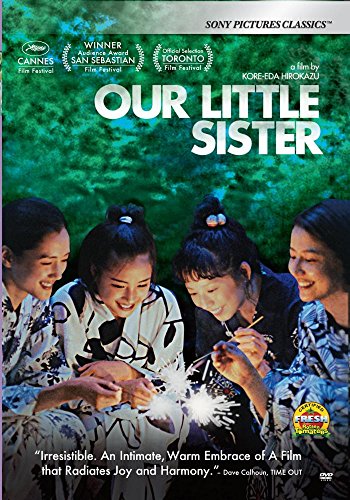Hirokazu Koreeda is a highly acclaimed Japanese film director known for his thoughtful and emotionally resonant films that explore the complexities of family, relationships, and society.
His works often examine the tensions and resentments that exist within families and the connections that bind people together.
One of Koreeda’s defining characteristics as a filmmaker is his ability to capture the subtleties of human emotions with a great deal of sensitivity and nuance.
His films are characterized by their quiet introspection and understated storytelling, which often reveal profound truths about the human experience.
Koreeda’s films have won numerous awards and critical acclaim around the world, with many being selected for prestigious film festivals such as Cannes and Toronto.
Some of his most notable works include “Shoplifters,” “Still Walking,” “Nobody Knows,” and “After Life.”
Best Hirokazu Koreeda Films
These films have earned him a reputation as one of the most talented and innovative directors working today, and his impact on the world of cinema continues to be felt with each new release.
1. Still Walking (2008)
“Still Walking” is a 2008 Japanese film directed by Hirokazu Koreeda. It is a poignant family drama that explores the tensions and resentments that exist within a family gathering for a memorial day.
The film is a masterpiece of subtlety and nuance, and it has been widely praised for its realism, its depth of feeling, and its incisive observations about family relationships.
The film follows the Yokoyama family as they gather to commemorate the death of the eldest son, Junpei, who died in an accident 15 years ago.
The family members include the parents, the surviving son and his wife, and the widow of Junpei.
As they prepare and share a meal, old resentments and grudges surface, and the family members must confront the tensions and secrets that have long divided them.
Koreeda’s direction in “Still Walking” is incredibly perceptive, drawing out the subtle nuances of his characters’ interactions and illuminating their unspoken feelings.
The film is deeply moving in its exploration of familial relationships and dynamics, and it has been praised for its honesty and emotional complexity.
“Still Walking” is a testament to Koreeda’s skill as a filmmaker and his ability to capture the complexity of human relationships with a great deal of sensitivity and nuance.
It is a powerful and affecting film that will stay with viewers long after the credits have rolled.
- Factory sealed DVD
- Hiroshi Abe, Yui Natsukawa, You (Actors)
- Hirokazu Kore-eda (Director)
- English (Subtitle)
- English (Publication Language)
2. After Life (1998)
“After Life” is a 1998 Japanese film directed by Hirokazu Koreeda. It is a poignant meditation on memory, regret, and the fleeting nature of life.
The film is set in a limbo-like place where the recently deceased are asked to choose one memory to take with them into eternity, and the film explores the struggles of the caseworkers who are tasked with helping the newly dead make their choices.
The film features a unique premise and an inventive, dreamlike atmosphere. Koreeda’s direction is both compassionate and sensitive, bringing a human touch to the supernatural setting.
If you like Hirokazu Koreeda’s work, on our sister site AuteurGraph we have a profile page, a visual film timeline, and a ratings page that gives a tonne of info and data about their career in a visualized form.
The film is a deeply moving exploration of the nature of memory and the power that memories have to shape our understanding of the world around us.
The characters in “After Life” are complex and well-drawn, and the film is driven by a quiet, understated emotional power.
The film has been praised for its subtlety and nuance, and its ability to evoke profound feelings of nostalgia and longing.
Overall, “After Life” is a testament to Koreeda’s talent as a filmmaker and his ability to create thought-provoking, emotionally resonant films that explore the complexities of the human experience.
It is a powerful and deeply affecting film that is sure to leave a lasting impression on those who watch it.
- Demon Slayer: Kimetsu No Yaiba - 4
- Demon Slayer: Kimetsu No Yaiba - 4
- Demon Slayer: Kimetsu No Yaiba - 4
- Demon Slayer: Kimetsu No Yaiba - 4
- Demon Slayer: Kimetsu No Yaiba - 4
3. Shoplifters (2018)
“Shoplifters” is a 2018 Japanese film directed by Hirokazu Koreeda. It is a poignant and emotionally complex drama that explores the meaning of family and the struggles of living in poverty in contemporary Japan.
The film tells the story of a group of people who live on the margins of society and survive by shoplifting, and who take in a young girl who appears to be homeless and neglected.
Koreeda’s direction in “Shoplifters” is deeply compassionate and insightful, illuminating the inner lives of his characters with subtlety and nuance.
The film is a powerful exploration of the bonds that connect us as human beings, and the sacrifices that we are willing to make for those we love.
The performances in “Shoplifters” are outstanding, particularly those of the child actors, who bring a sense of authenticity and vulnerability to their roles.
The film has been widely praised for its incisive social commentary and its ability to explore complex themes with both sensitivity and depth.
Overall, “Shoplifters” is a powerful and deeply affecting film that showcases Koreeda’s remarkable talent as a filmmaker. It is a work of great emotional depth and sensitivity, and it is sure to leave a lasting impression on those who watch it.
The film was awarded the prestigious Palme d’Or at the 2018 Cannes Film Festival, cementing its place as a modern classic of Japanese cinema.
- Polish Release, cover may contain Polish text/markings. The disk has English subtitles.
- English (Subtitle)
4. Like Father, Like Son (2013)
“Like Father, Like Son” is a 2013 Japanese film directed by Hirokazu Koreeda. It is a poignant family drama that explores the meaning of parenthood and the relationships between parents and children.
The film tells the story of two families who discover that their six-year-old sons were switched at birth, and the resulting emotional turmoil that follows.
Koreeda’s direction in “Like Father, Like Son” is both subtle and emotionally complex, exploring the nuances of family relationships with great sensitivity and nuance.
The film is a powerful exploration of the bonds that connect us as human beings, and the sacrifices that we are willing to make for those we love.
The performances in “Like Father, Like Son” are outstanding, particularly those of the child actors who bring a sense of authenticity and vulnerability to their roles.
The film has been widely praised for its exploration of complex themes, including the nature of parental love and the challenges of family life.
Overall, “Like Father, Like Son” is a deeply moving and insightful film that showcases Koreeda’s remarkable talent as a filmmaker. It is a work of great emotional depth and sensitivity, and it is sure to leave a lasting impression on those who watch it.
The film won the Jury Prize at the 2013 Cannes Film Festival, further cementing its place as a modern classic of Japanese cinema.
- Amazon Prime Video (Video on Demand)
- Masaharu Fukuyama, Machiko Ono, Yoko Maki (Actors)
- Hirokazu Kore-eda (Director) - Hirokazu Kore-eda (Writer) - Chihiro Kameyama (Producer)
- English (Playback Language)
- English (Subtitle)
5. After the Storm (2016)
“After the Storm” is a 2016 Japanese drama film directed by Hirokazu Kore-eda. The film tells the story of Ryota Shinoda, a struggling writer and private detective, who attempts to reconnect with his estranged wife and young son in the aftermath of a typhoon.
The film explores themes of family, love, and regret, as Ryota confronts the mistakes of his past and tries to rebuild his relationships with his loved ones.
The film premiered at the 2016 Cannes Film Festival and received positive reviews from critics. It features a cast that includes Hiroshi Abe, Yoko Maki, Kirin Kiki, Lily Franky, and Sosuke Ikematsu.
- Amazon Prime Video (Video on Demand)
- Hiroshi Abe, Yôko Maki, Satomi Kobayashi (Actors)
- Hirokazu Kore-Eda (Director) - Hirokazu Kore-Eda (Writer) - Kaoru Matsuzaki (Producer)
- English (Playback Language)
- English (Subtitle)
6. Air Doll (2009)


Air Doll
A very "human" story.
2009 • 1h 52min • ★ 7/10 • Japan
Directed by: Hirokazu Kore-eda
Cast: Bae Doona, Arata Iura, Itsuji Itao, Joe Odagiri, Sumiko Fuji
A life-size, inflatable sex doll suddenly comes to life one day. Without her owner knowing, she goes for a walk around town and falls in love with Junichi. She starts to date Junichi and gets a job at the same store where he works. Everything seems to be going perfectly for her until something unexpected happens.
“Air Doll” is a 2009 Japanese drama film directed by Hirokazu Kore-eda. The film is based on a manga by Gouda Yoshi, and tells the story of an inflatable sex doll named Nozomi, who develops consciousness and begins to explore the world around her.
As Nozomi begins to discover the complexities of human emotion and relationships, she becomes increasingly curious about the world outside of her apartment and begins to interact with the people around her.
The film explores themes of loneliness, desire, and the search for meaning and connection in a modern, urban society.
The film features a cast that includes Bae Doona as Nozomi, Arata Iura, Joe Odagiri, and Sumiko Fuji. “Air Doll” premiered at the Cannes Film Festival in 2009, and received positive reviews from critics.
- The disk has English audio.
- Doona Bae, Arata, Itsuji Itao (Actors)
- Hirokazu Koreeda (Director)
- English (Subtitle)
7. Our Little Sister (2015)
“Our Little Sister” is a 2015 Japanese drama film directed by Hirokazu Kore-eda. The film is based on the manga series “Umimachi Diary” by Akimi Yoshida and tells the story of three sisters who live together in Kamakura, Japan.
After their estranged father dies, they attend his funeral and meet their half-sister, Suzu, who is still a teenager.
The sisters invite Suzu to come live with them in their large, old-fashioned house, and she soon becomes a beloved part of their family.
The film explores themes of family, love, and the challenges of growing up, as each of the sisters confronts their own personal struggles and navigates the complexities of their relationships with one another.
“Our Little Sister” features a cast that includes Haruka Ayase, Masami Nagasawa, Kaho, Suzu Hirose, and Shinobu Otake.
The film premiered at the 2015 Cannes Film Festival and received positive reviews from critics, who praised its beautiful cinematography, strong performances, and heartfelt storytelling.
- Haruka Ayase, Suzu Hirose, Masami Nagasawa (Actors)
- Hirokazu Koreeda (Director)
- English, French (Subtitles)
- Audience Rating: PG (Parental Guidance Suggested)
3 Characteristics of Hirokazu Koreeda Films
Hirokazu Koreeda is known for his poignant, character-driven dramas that explore themes of family, memory, and the human experience.
Here are three characteristics commonly found in his films:
1. Realistic And Subtle Storytelling
Koreeda’s films often rely on a slow and deliberate pace, with a focus on nuanced character development and subtle, everyday moments.
He tends to avoid melodrama and instead opts for a realistic approach to storytelling, often exploring the complexities of human relationships in a quiet and contemplative manner.
2. Emphasis On Family
Many of Koreeda’s films center around family dynamics, often exploring the bonds that tie family members together and the challenges that arise when those bonds are tested.
He often focuses on the relationships between parents and children, as well as the connections between siblings and extended family members.
3. Humanistic Themes
Koreeda’s films frequently explore humanistic themes, such as love, loss, memory, and the search for meaning and connection in a rapidly changing world.
He often portrays his characters with empathy and a deep understanding of their struggles and desires, resulting in films that are both emotionally resonant and thought-provoking.
3 Reasons Why You Should Watch Hirokazu Koreeda Films
There are many reasons why you should watch Hirokazu Koreeda’s films, but here are three that stand out:
1. Unique Storytelling Style
Koreeda’s films often have a unique and subtle storytelling style that sets them apart from other films.
His focus on small, everyday moments and his ability to capture the nuances of human relationships in a realistic way make his films emotionally resonant and thought-provoking.
2. Strong Emphasis On Character Development
Koreeda’s films are often character-driven, with a focus on developing complex and fully-realized characters that audiences can relate to and empathize with.
He delves deeply into his characters’ struggles and desires, creating films that are both emotionally engaging and intellectually stimulating.
3. Exploration Of Universal Themes
Many of Koreeda’s films explore universal themes such as family, love, loss, and memory. His films often raise thought-provoking questions about what it means to be human and the challenges we all face in navigating the complexities of life.
Watching his films can be a deeply rewarding and enriching experience that can help viewers gain new insights into their own lives and relationships.
Best Hirokazu Koreeda Films – Wrapping Up
Hirokazu Koreeda is a highly regarded Japanese filmmaker known for his poignant and character-driven dramas that explore themes of family, memory, and the human experience. Here are five of his best films:
“Shoplifters” (2018): A poignant and deeply affecting film that follows a family of petty thieves who take in a young girl they find on the street.
The film won the Palme d’Or at the 2018 Cannes Film Festival.
“Nobody Knows” (2004): A heartbreaking film that tells the story of four siblings who are left to fend for themselves when their mother abandons them.
The film is based on a true story and features a standout performance from child actor Yuya Yagira.
“After Life” (1998): A thought-provoking film that explores what happens to us after we die. The film takes place in a kind of purgatory, where the recently deceased must choose a single memory to take with them into the afterlife.
“Our Little Sister” (2015): A beautiful and heartwarming film that follows three sisters who take in their half-sister after their father’s death.
The film is based on a manga series and features strong performances from its ensemble cast.
“Still Walking” (2008): One of my all-time favorite films. A meditative and subtle film that follows a family as they come together for a memorial gathering.
The film explores the tensions and unspoken feelings that exist between family members and features a strong central performance from Hiroshi Abe.
All of these films showcase Koreeda’s unique storytelling style and his ability to capture the complexities of human relationships in a realistic and emotionally resonant way.


![Still Walking (The Criterion Collection) [Blu-ray]](https://m.media-amazon.com/images/I/41aSL5MHjGL.jpg)

![After Life (The Criterion Collection) [DVD]](https://m.media-amazon.com/images/I/41k-LvUOp0S.jpg)
![Shoplifters [Blu-ray] [2018]](https://m.media-amazon.com/images/I/51WWNOdrv7L.jpg)



![Air Doll Collectors Edition [Blu-ray]](https://m.media-amazon.com/images/I/41xSDSDrdqL.jpg)



